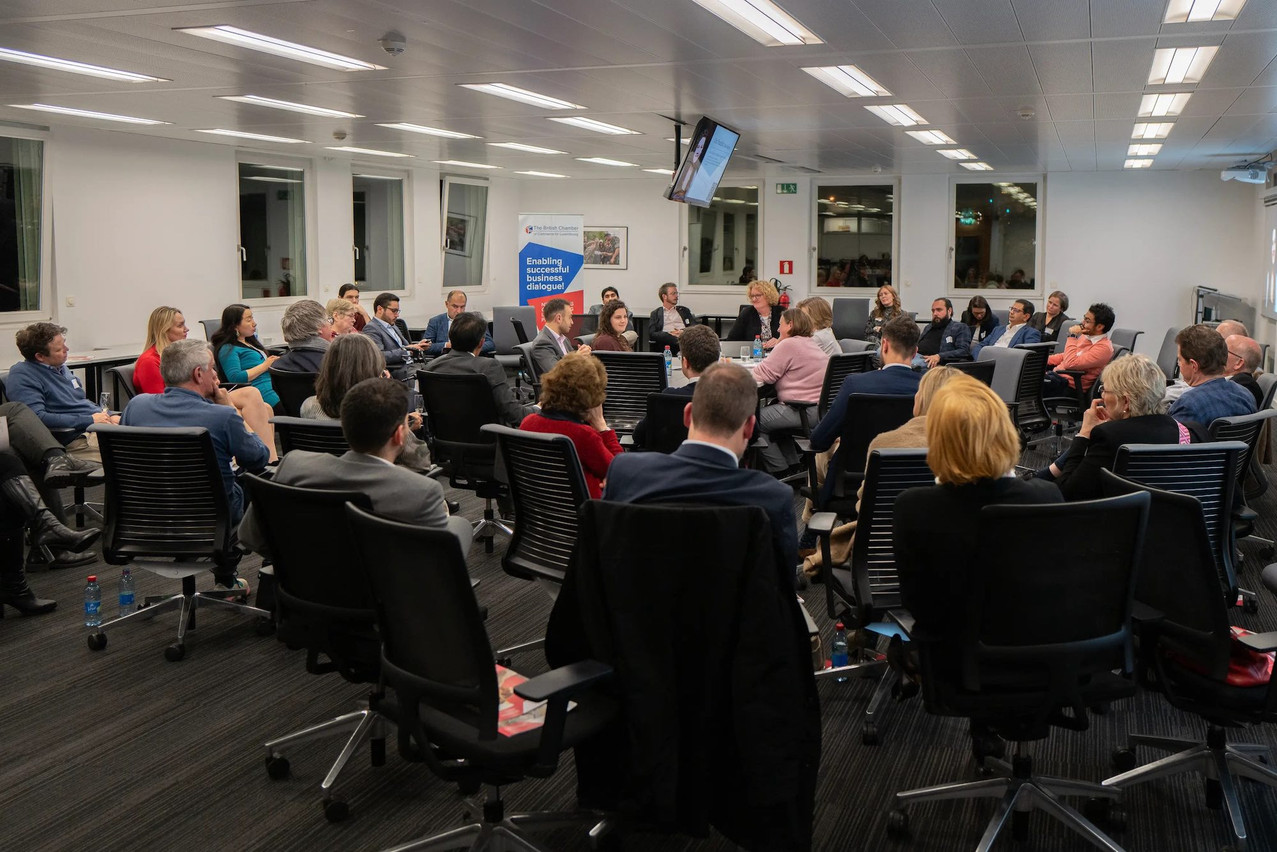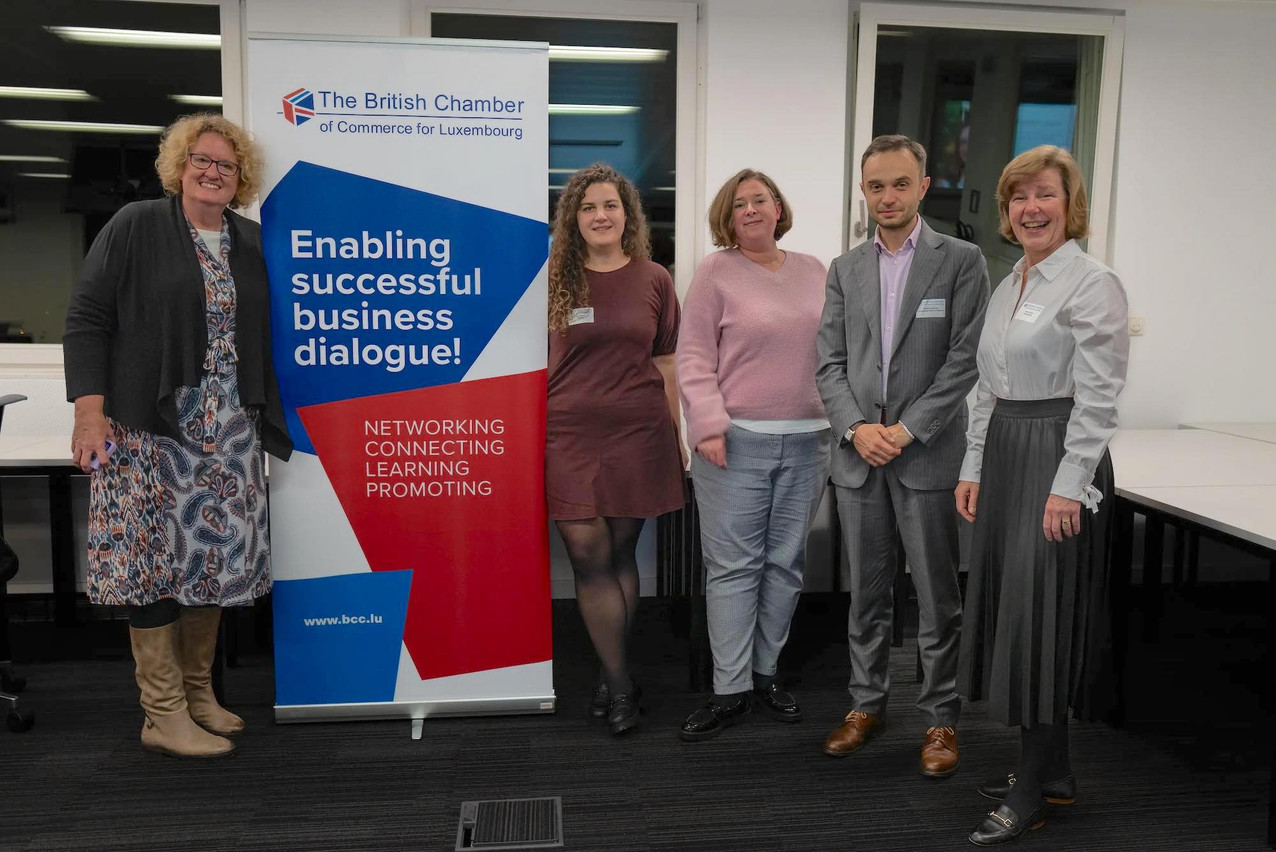In a thought-provoking organised by the British Chamber of Commerce for Luxembourg’s people and leadership group, a diverse panel engaged in a “kitchen table conversation” about artificial intelligence and its impact on education and business. The gathering aimed to address the critical question: How can we bridge the knowledge gap between educational institutions and business communities?
The panel, featuring educators, entrepreneurs and corporate leaders, explored key issues such as fostering confidence in young job seekers, adapting education to AI innovations, and cultivating essential skills like critical analysis and creative thought from a young age.
The conversation was moderated by Virginia Anderson of Matrix Consulting and featured four panellists: Matteo Forgiarini, lecturer and academic director, Luxembourg School of Business; Amy Lee, upper school assistant principal for teaching and learning, International School of Luxembourg; Nika Margeta, senior business intelligence engineering, Amazon; and Ariane Töpfer, manager & coach, Youth & Work
Rather than providing concrete answers, the kitchen table conversation focused on sparking a conversation that involved the entire audience. Attendees and panellists delved into ideas such as reshaping the education system, emphasising human skills over operational tasks handled by AI, and addressing ethical considerations in AI usage.

Participants are seen taking part in a kitchen table conversation (KTC) during the British Chamber of Commerce for Luxembourg’s “Artificial intelligence: bridging the knowledge gap” event, held at the Luxembourg School of Business, 14 December 2023. Photo: BCC/Ali Sahib
The discussion extended to trust in AI, questioning whether we can rely on AI for medical diagnoses and highlighting the importance of human empathy in crucial situations. The KTC not only left participants with inspiring perspectives, but also generated innovative ideas that promise to shape the ongoing dialogue on AI in education and the workplace. The conversation doesn’t end here; the KTC has set the stage for continued exploration of AI’s impact on our lives.
This article was written on behalf of the British Chamber of Commerce by Virginia Anderson and was, the chamber said, “simplified by ChatGPT to create a shorter version.” It was subsequently edited by Delano for style and clarity.
Read also
